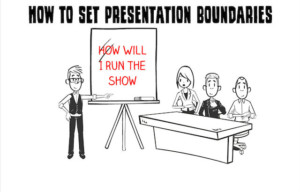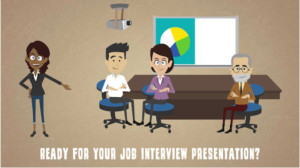There is usually a lot of emphasis on the Do’s and Don’ts before and during presentations – but very little attention is given to the Do’s and Don’ts after a presentation.
If the time after the presentation is used right, it could elevate your future presentations. If the time is not used right, it will hinder your future presentations.
Here is a list of 4 Don’ts and 4 Dos from my personal experience
Don’t – Beat yourself up for forgetting to cover something you wanted to include. It reduces your trust in yourself.
Do – Trust that whatever came out was intended to come out. If you forget to mention something, then it’s fine, and if you mentioned something extra, then it’s fine as well. It builds your trust with your unconscious mind and makes you better and more comfortable thinking on your feet in the future.
I learned this lesson when I was a kid, and we were immigrating to the US. We arrived at the airport of the old country late, and the pilot came down from the airplane and started yelling at my parents in French. My parents pushed me in front of him because they thought I might be able to communicate with him.
So I decided to talk to him in English and planned to say “sorry, it’s not our fault ”
Instead, I said, “ Sorry, It’s not our problem.”
The pilot started screaming at the top of his lungs. All I remember after that is him screaming, moving his arm and the big vein in his forehead.
Everyone panicked in the airport, including the TSA equivalent at the time and they screened our bags and had us on the airplane in 5 minutes.
For years I wondered what would have happened if I said what I planned to say.
Probably the pilot would not have got so upset, and the security team would not have acted with such urgency, and we would have missed our plane.
So I am glad at the words that came out of my mouth.
The lesson I learned is that I should trust what comes out of my mouth.
Yes, if you follow this approach you will mess up every once in a while, but you will also look brilliant every once in a while. And the more and more you trust your unconscious mind the more your brilliance will show up. It happens because your unconscious mind is a super computer and it will tune itself to your needs.
Don’t – Beat yourself up for doing poorly. It reduces your confidence for future presentations and feeds your anxiety response.
Do – Every presentation and no matter how bad it was, has some good elements. Try to find the best parts and focus on those – this flags to your brain what you want in future presentations and takes away the fuel anxiety feeds on.
Because of my analytical training, I tend to look for problems all the time. That approach helps me in a lot of situations but does not help me a lot after a presentation is done. Ignoring all the great content and performance my audience received and focusing my attention on a spelling mistake I found after the presentation is not an ideal situation and does not serve anyone.
Now,
. Every time my mind goes to something that did not go right, I stop it and change direction to what was good.I can’t help it; my mind has been conditioned for years to look at the problems. I am hoping that with continuous conditioning it will learn to look at the positive especially after a presentation.
Don’t – Re-play everything you said in your head. This drains and takes away your energy
Do – Let go of your presentation and relax – this helps you get rid of your post presentation stress so that you can rejuvenate.
Just like there is a momentum of thoughts building up to a presentation, there is also a driving force of thought that continues after it is done.
The first step to turning off the momentum is realizing that it’s there. Next time you do a presentation notice what’s going on in your head afterward. Do you think about the next topic or next presenter or are you still playing your presentation in your head?
This momentum usually causes post presentation anxiety. You want to stop it as soon as possible by learning to let it go.
Don’t – Ask for negative feedback from others. This trains your expectation to look for the negative in what you do
Do – Only ask for positive and constructive feedback and only seek it from people you trust. This will help you learn and grow based on trusted data.
I hate it when people come and tell me that they are a “big boy” or “big girl” and they can handle the negative feedback – so I should give it to them.
The reason most people have presentation anxiety and public speaking fear is because of all the negative and destructive feedback they’ve received.
What you want is the positive feedback to boost your self-image and confidence, and you need constructive feedback that teaches you exactly what to fix and how to fix it.



